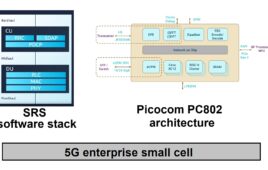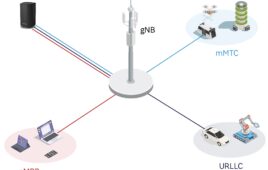AT&T is set to bring trials of its fixed wireless 5G technology to three new cities by the end of the year, expanding an effort it launched in Austin in June.
The carrier indicated new business and residential customer trials of fixed wireless 5G will be launched in Waco, Texas; Kalamazoo, Mich.; and South Bend, Ind., in the coming months. Alongside the new fixed wireless tests, AT&T said it will also continue to conduct pre-standard mobile 5G tests.
AT&T said it plans to apply “key learnings” from its Austin study to the new fixed wireless trials, expanding both the number of participants and the physical footprint of the trial area in the new markets. Test sites in Austin included a car wash, a church, other small businesses, and an apartment unit. In the new cities, AT&T said participants may include universities, hospitals, churches, restaurants, and other small businesses.
AT&T reports its Austin tests have yielded speeds of up to 1 Gbps and latency “well under” 10 milliseconds for the radio link. But the carrier noted a larger sample size will help AT&T better understand the performance and propagation characteristics of millimeter wave bands, such as how things like foliage, building materials, device placement, surrounding environment, and weather impact the signal and system in a real-world environment.
“In Austin, we see all types of weather and substantial foliage,” Marachel Knight, AT&T’s SVP of Wireless Network Architecture and Design, commented. “Taking our fixed wireless 5G trials out of the lab and into the real world helps us learn important factors about mmWave and 5G. And in doing so, we’re learning how to better design our network for the future.”
As before, the tests will be conducted using equipment from Ericsson, Samsung, Nokia, and Intel, which will deliver a 5G internet connection to participating locations. Ericsson will provide 28 GHz radios, a virtualized RAN, and a 5G virtualized core. Samsung will contribute a 5G router built on its 5G RFIC chipset as well as virtualized core and RAN solutions. Intel is lending its 5G Mobile Trial Platform to the tests.
According to AT&T, learnings from its continued fixed and mobile tests will be contributed to the ongoing 3GPP standards process and ultimately used to help speed up standards-based 5G deployments as early as late next year.
AT&T rival Verizon is also pushing hard on fixed wireless 5G.
Verizon launched fixed wireless 5G customer pilots in five cities back in February, with plans to expand to 11 markets by the middle of the year. You can watch a May update on the trials from Verizon’s Director of Network Infrastructure Planning here.
Verizon CEO Lowell McAdam has said fixed wireless 5G will help the carrier get over the 5G investment “hump” because it will allow the carrier to expand its footprint at a “miniscule” cost and provide “all the return on capital that you need.”
According to a recent forecast from SNS Research, fixed wireless 5G is expected to by a $40 billion market by 2025. That segment will get a jumpstart via early deployments from AT&T and Verizon, the report indicated, which are expected to drive fixed wireless 5G service revenues to $1 billion by the end of 2019. More on that here.



